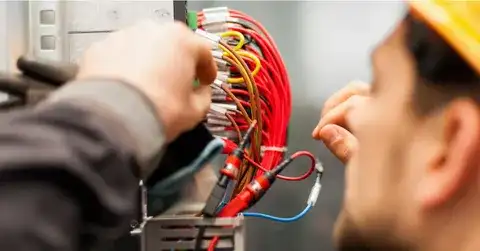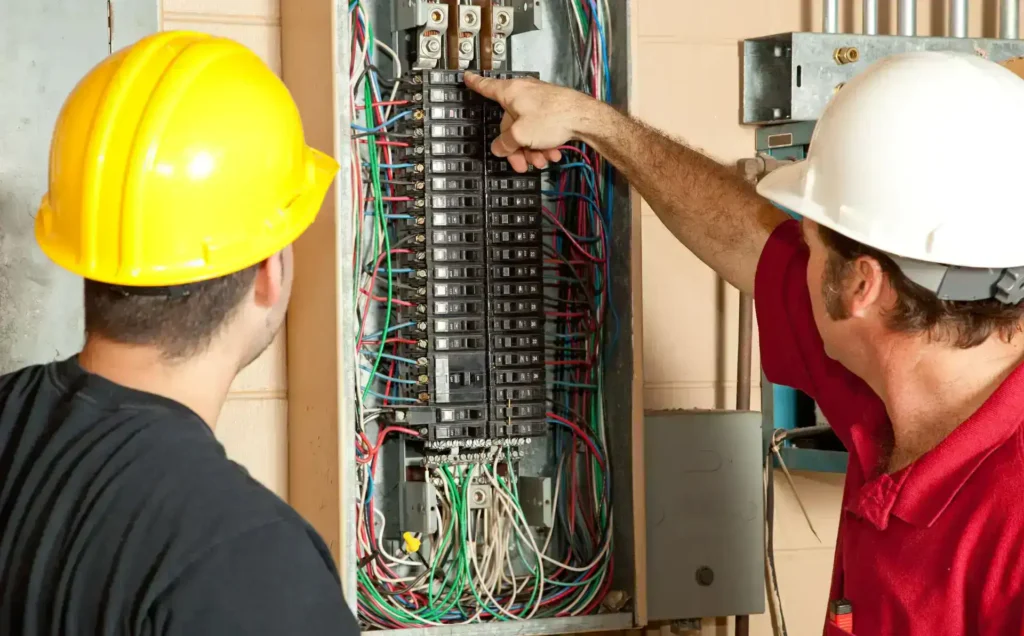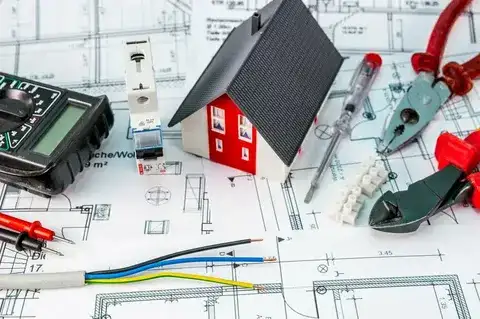Electricians charge per outlet at different prices depending on the type and work needed. A basic outlet can cost as little as $95. More advanced outlets, like GFCI units, can cost up to $335. The average price is usually between $150 and $250 for installation, including materials.
Some outlets, like commercial-grade ones, cost more than regular ones. The price can also go up if extra wiring or special tools are needed. Knowing what type of outlet you need can help you plan your budget. It also makes it easier to choose the right professional when electricians charge per outlet.
Labor Cost to Install Electricians Change Outlet

Installation labor costs for an electrician outlet usually vary between the ranges of $40 to $100 per hour. Most electricians can install a common outlet between 30 minutes to an hour, meaning that the labor price alone generally costs an individual anywhere from $40 to $100 for each outlet.
But, of course, it could even increase if there are other additional works involved, like running new wires, upgrading circuits, and placing outlets in difficult-access locations. For complicated installations, this might cost up to $200 or more for labor alone. It is important to discuss all this with your electricians to avoid being surprised.
Factors Influencing the Cost of Adding an Outlet
Location
The geographical location also has a big influence on the price. Service charges in the United States or regions with a high cost of living are higher than those in rural areas. Electricians adjust their rates according to the local cost of living and business expenses.
Type of Outlet
The type of outlet you need is a critical factor in determining the overall cost. Standard outlets are generally less expensive than specialized ones, such as GFCI (Ground Fault Circuit Interrupter) or AFCI (Arc Fault Circuit Interrupter) outlets. Specialized outlets are designed for specific safety requirements and are often mandated in certain areas, such as kitchens and bathrooms.
While more expensive initially, such specialty outlets come with the added safety assurance of meeting the electrician codes. GFCI protects the electricians from l shock, and AFCI protects against fires in the installation caused by the electricians. Safety will thus be related to the selection of the proper type of outlet, besides adding to the overall installation cost.
Accessibility
Accessibility also plays a major role in the cost of adding an outlet. If the installation area is accessible, then it takes less time and, thus less expensive. If electricians have to work in places difficult to reach, such as behind walls or in crawl spaces, then the labor time goes up, and so will the cost. The higher the difficulty of the location, the more costly it will be because more effort and time are taken to complete the job.
Permit Requirements
The cost of installing a new outlet may also be influenced by permit requirements. In some places, you will need a permit to ensure that the work is up to local safety codes and regulations. The cost of a permit is another expense that homeowners should factor into their planning for the project. These permits ensure that the installation is safe and legal, but they increase the overall cost of the installation.
Labor Rates
Labor rates are among the cost factors of an outlet installation. Electricians usually charge by the hour, and their rates are usually dependent on experience, location, and the complexity of the job. Rates tend to be higher for licensed professionals or for jobs that demand more expertise. It would be wise to get a clear quote from the electricians in order to understand the labor costs involved in the project.
Materials and Equipment
Materials and equipment are among the costliest aspects of installing a new outlet. This includes the cost of outlets, wiring, electrical boxes, and any other components that may be required. The price will depend on the quality and brand of the materials. High-quality materials or specialized outlets can increase the cost, so it is important to choose what fits your needs and budget.
Cost for New Outlet Installation
Enhancing your home by installing or replacing electricians outlets is an effective way to modernize your space. Whether you’re upgrading to USB outlets or adding a new outlet in your kitchen.
The cost to replace or install a standard outlet typically ranges from $130 to $200. However, the national average cost can vary between $100 and $500 or more per outlet, depending on the complexity of the installation. Keep reading to learn about the factors that will influence the cost of your specific project.
Average Costs for Outlet Installation
The average cost for outlet installation is typically around $200, but it can vary depending on factors like complexity and location.
Here’s a breakdown of the cost range for outlet installation:
Aspect |
Price Range |
| Lowest Cost | $130 to $200 per outlet |
| Average Cost | $200 to $500 or per outlet |
| Highest Cost | $100 to 200 per outlet |
The national average for adding an outlet ranges from $100 to $500, depending on the job’s complexity and location. By understanding these price ranges, you can better plan for your project.
Cost to Replace Electricians Charge per Outlet
The cost of replace an Electricians charge per outlet generally falls between $120 to $250, which includes labor as well as materials. An electrician charges around $40-$170 for half to an hour of labor, depending on whether the task is straightforward or a bit more complicated.
For example, replacing several outlets within a home may incur costs ranging anywhere from $1,100 to $2,400 depending on how many and what type of outlets are being replaced. It’s really important to hire a licensed electrician for safety reasons; an incorrect installation could easily lead to fire hazards as well as electrical shock.
Tips for Cost Savings
Bundle Services
If you have more than one electrical task, consider bundling them together into one project. Sometimes, electricians give discounts when they work on several jobs at once, since it helps them complete them more efficiently. Bundling services can save you money and complete all necessary upgrades at once.
Obtain Multiple Quotes
Requesting quotes from several electricians is a smart way to find competitive rates. Each professional may have a unique pricing structure, so comparing their estimates helps you choose the best value for your project. Ensure the quotes include labor, materials, and any additional fees to avoid surprises.
Provide Clear Information
Clear communication with your electrician ensures accurate quotes. Specify the type of outlet, its intended location, and any specific requirements. Providing detailed information upfront helps the electrician prepare a precise estimate, reducing the likelihood of unexpected costs.
Consult Local Electricians
Working with local electricians is beneficial for understanding regional requirements and costs. Local professionals are familiar with local codes and permitting processes, ensuring compliance and safety. Their knowledge of the area can also help streamline the project.
Your Safety and Compliance Priorities
Cost is a key factor, but there should not be any compromise as regards safety and compliance. You can rest assured, however, that a qualified electrician meets the demands in safety and standards of practice as well as local regulations. Pay for quality materials and professional services, which will save risks and give more value to your home in the long-term.
Conclusion
Electricians charge per outlet depending on location, kind of outlet, complexity, and accessibility of wiring, among others. The average outlet will cost you between $100 and $500 according to your needs. Being aware of these cost considerations and following tips such as bundling services and availing multiple quotes will assist you in planning a cost-efficient and safe electrical project. Prioritizing safety and compliance ensures your home improvement will meet all of the standard requirements, hence giving peace of mind with functionality to years to come.
FAQS
1. What is the typical cost for an electrician to install an outlet?
The cost to install an outlet usually ranges from $130 to $200. It depends on the complexity and type of outlet.
2. Why do electricians charge different rates per outlet?
Rates vary based on the location, outlet type, and wiring complexity. Urban areas may have higher costs due to labor expenses.
3. Is it cheaper to install a standard outlet or a GFCI outlet?
Standard outlets are cheaper, typically costing $5 to $15. GFCI outlets cost more due to added safety features, ranging from $20 to $30.
4. Can I install an outlet myself to save money?
While it might seem tempting, it’s safer to hire a licensed electrician. Incorrect installation can lead to safety risks like electrical fires.
5. What factors influence the cost of adding an outlet?
The cost is influenced by wiring complexity, accessibility, and whether a permit is needed. Some outlets may require more time and effort to install.


